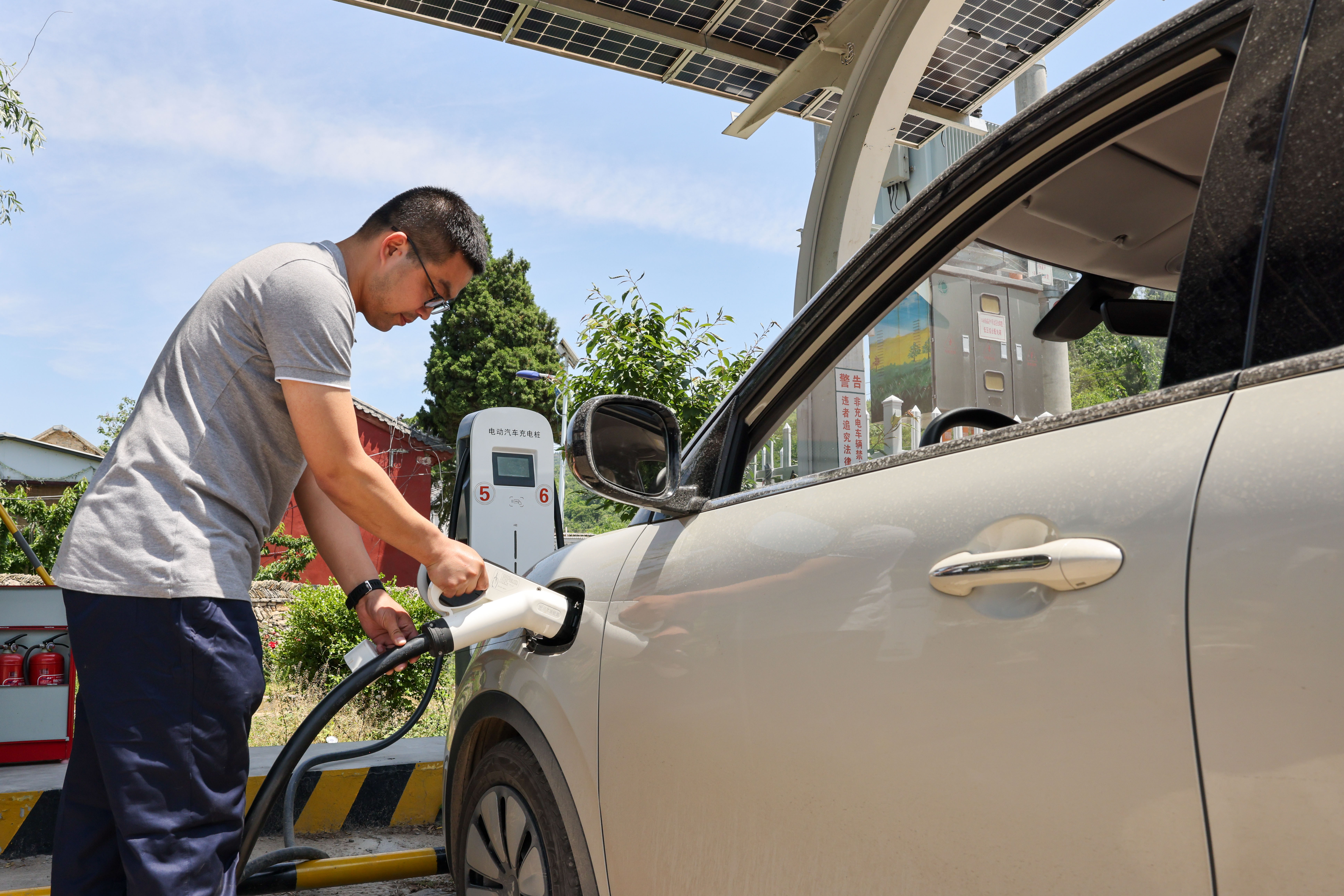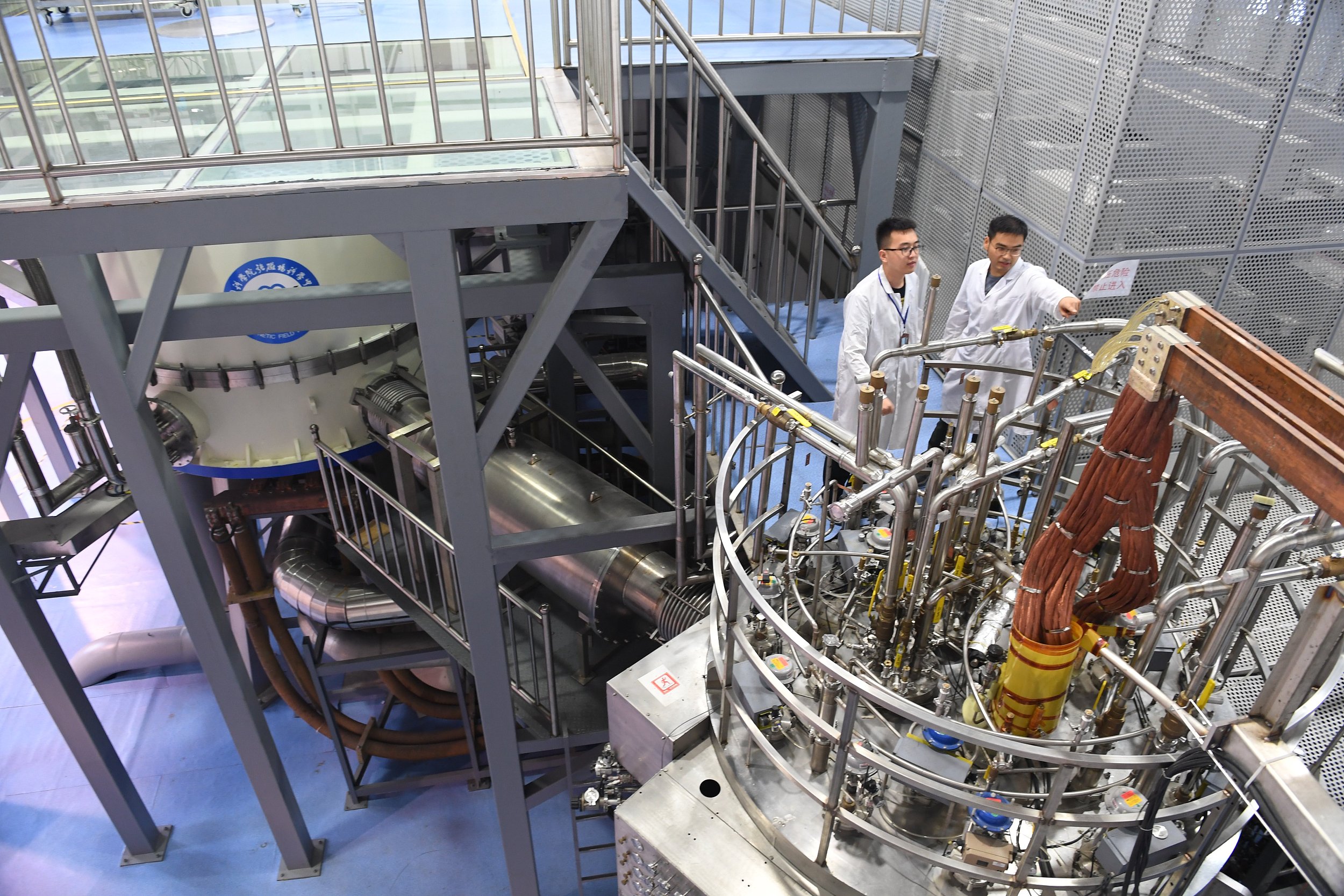Expanding NEVs Infrastructure in Rural Areas
A man charges an electric car at a photovoltaic energy storage station in Zhujiahu village, east China's Shandong province. (PHOTO: XINHUA)
By ZHONG Jianli
China has released a document to accelerate the construction of new energy vehicle (NEV) charging infrastructure and support for NEV sales in rural areas.
The document, issued by the National Development and Reform Commission and the National Energy Administration, calls for local governments to step up the distribution and construction of public charging infrastructure in counties or county-level cities.
China has established the world's largest charging infrastructure, providing a strong guarantee for the rapid development of NEVs in recent years, said the document.
However, there are still problems in rural areas, including insufficient public charging infrastructure and difficulties in installing and sharing charging facilities in residential communities, which restrict NEV sales potential there.
Local governments should also promote smart charging models and intelligent technologies, such as two-way interaction between electric vehicles and the grid or V2G technology, which allows vehicle batteries to return power to the grid when demand is high, according to the document.
NEV enterprises are encouraged to develop more economical and practical vehicle models tailored to consumers in rural areas, including new energy cargo-carrying minivans, mini trucks and light trucks.
In terms of consumer education, the document supports local governments and industry organizations to enhance consumers' acceptance of NEVs and alleviate their purchase and use concerns through a number of activities.



